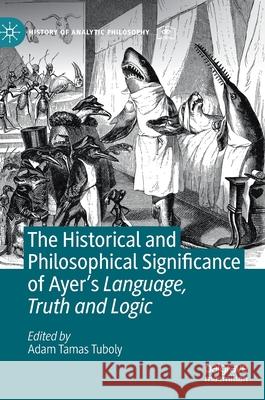The Historical and Philosophical Significance of Ayer's Language, Truth and Logic » książka
topmenu
The Historical and Philosophical Significance of Ayer's Language, Truth and Logic
ISBN-13: 9783030508838 / Angielski / Twarda / 2020 / 370 str.
The Historical and Philosophical Significance of Ayer's Language, Truth and Logic
ISBN-13: 9783030508838 / Angielski / Twarda / 2020 / 370 str.
cena 483,04
(netto: 460,04 VAT: 5%)
Najniższa cena z 30 dni: 462,63
(netto: 460,04 VAT: 5%)
Najniższa cena z 30 dni: 462,63
Termin realizacji zamówienia:
ok. 16-18 dni roboczych.
ok. 16-18 dni roboczych.
Darmowa dostawa!
Kategorie BISAC:
Wydawca:
Palgrave MacMillan
Seria wydawnicza:
Język:
Angielski
ISBN-13:
9783030508838
Rok wydania:
2020
Wydanie:
2021
Numer serii:
000380819
Ilość stron:
370
Waga:
0.65 kg
Wymiary:
21.01 x 14.81 x 2.54
Oprawa:
Twarda
Wolumenów:
01
Dodatkowe informacje:
Wydanie ilustrowane











